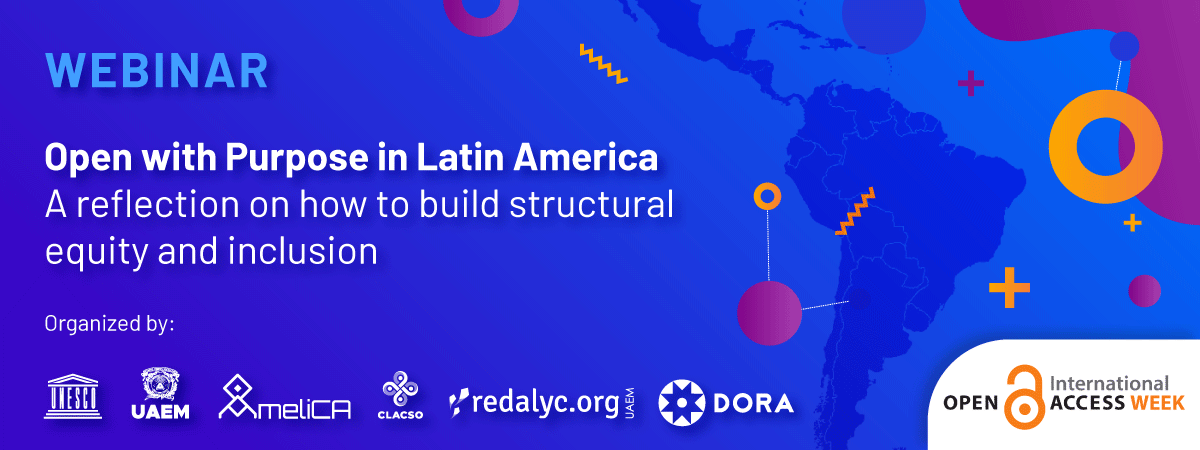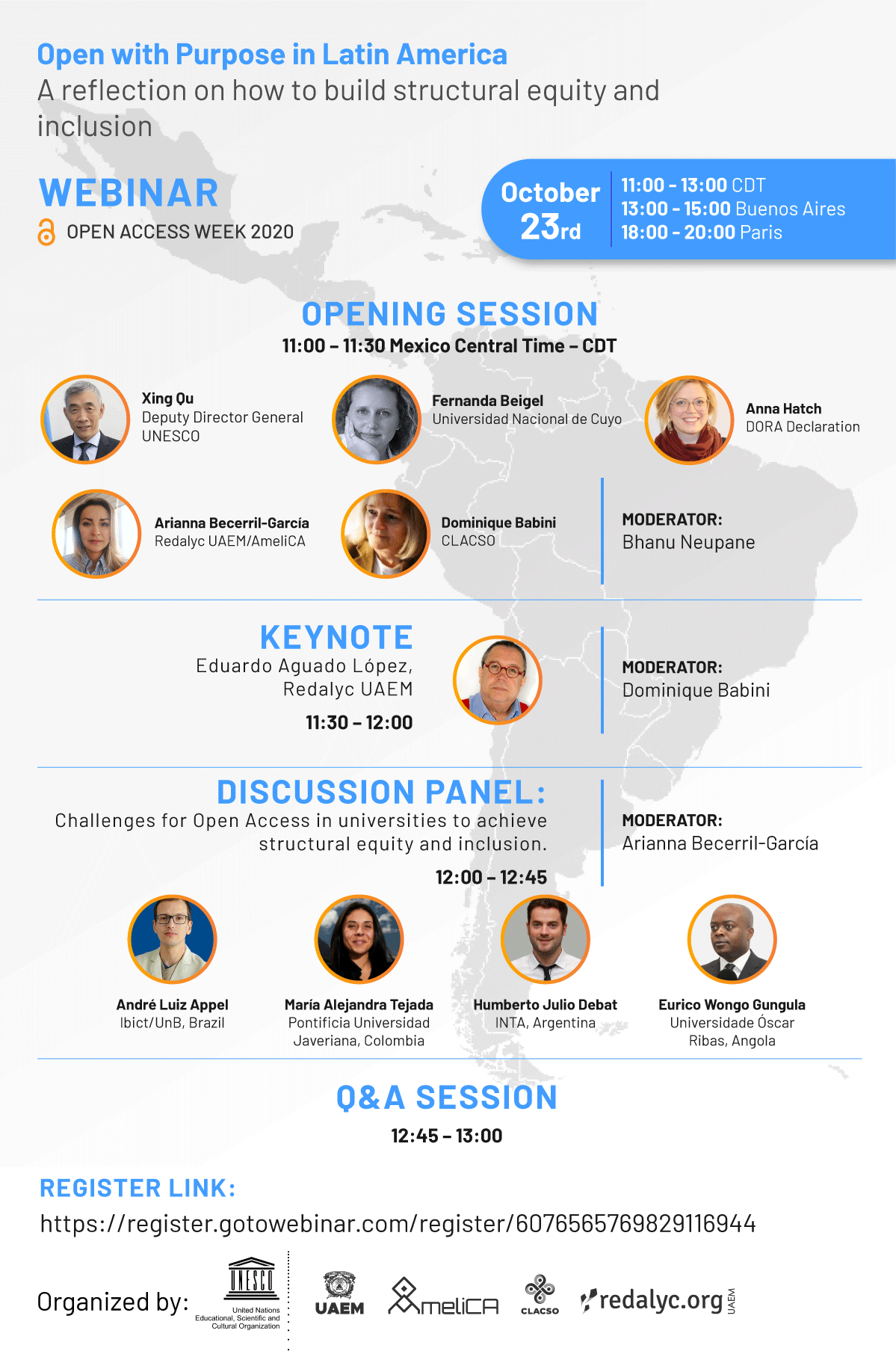“Open with Purpose in Latin America. A Reflection on how to build structural equity and inclusion”

The academic world is supporting and contributing to the completion of the objectives set by the United Nations, among them the promotion and protection of human rights, access to information and sustainability. UNESCO works to “maintain, increase and disseminate knowledge by fostering cooperation among nations in all branches of intellectual activities”1 according with goal number 17.6 of the Sustainable Development Goals (SDGs’).2 In this process, UNESCO has been working with the academic world as one of the main associates to make this communities more “open” and “inclusive”, looking to democratize scientific knowledge. UNESCO recognizes Open Access as one of the main tools for the openness since it allows researchers to learn and build on previous research. Thanks to this it is possible to create relevant and accessible scientific research for all.
Open Access week is an “annual scholarly communication event on Open Access issues and it’s an opportunity to reflect on past progress, strengthen multifactorial processes and plan strategies for the future” UNESCO, together with its associates, wishes to take advantage of the Open Access week 2020 to collaborate with academia to explore new changes in the processes of publishing and democratizing knowledge. The theme of the Open Access week will be “Open with purpose”
Latin America has been a leading continent on Open Access. This has been made through establishing examples and various cornerstones. Therefore, with the objective of committing the Latin American academy to improve understanding of the subject and to generate concrete actions to increase its role on the publication processes, a regional webinar has been organized.
In this regard, UNESCO and its associates will organize an event dedicated to debate the role, participation and concern regarding Open Access and Latin America during Open Access Week 2020. This is a global event with 10 years of experience which presents an opportunity for the academic and research community to continue learning about the potential benefits of Open Access; for the academy to share what it has learned with its colleagues and to help inspire a bigger participation to help make Open Access a new norm for scholarship and research.
Webinar “Open with Purpose in Latin America. A Reflection on how to build structural equity and inclusion”.
Goals
- Take note of current efforts on Open Access by academic circles in collaboration with other stakeholders.
- To show the strategies proposed by the Latin American region to achieve a purposeful Open Access.
- To study the concerns of the academy to guarantee the achievement of Open Access and that national and institutional methodologies for the evaluation of science that seeks to strengthen non-commercial Open Access, to achieve greater equity and participation of developing countries.
- Involve new generations in the reflection on the evolution and sustainability of Open Access that allows to sensitize new researchers on the benefits of achieving inclusive scientific communication.
- To reflect upon the evolution of evaluative cultures and their impact on the future of Open Access.
Date and Hour
- October 23rd, 2020 11:00 – 13:00 (CDT)
Agenda

Online Payday Loans – Check Into Cashch. Get Your Payday Loan Online! Apply in just Minutes! Get Approved in seconds; Get Cash Online in as Little as 24 Hours; Get Money in site Loans-Cash.Net
Register link: https://register.gotowebinar.com/register/6076565769829116944
UNESCO: In accordance with its commitment to guarantee Open Access to Information, UNESCO has developed several initiatives and training programs to raise awareness of the importance of Open Access. Furthermore, UNESCO has contributed to bridging the technological gap, looking to create resources such as open digital repositories. UNESCO is also the first United Nations organization to develop an Open Access strategy for the publication of data and other resources. This effort will be coordinated by UNESCO headquarters with strategic and programmatic contributions from UNESCO’s field offices in Asia and Latin America.
AmeliCA/Redalyc: Open information for Latin America and the Southern Cone. It is an infrastructure developed for the academic communications ecosystem in Latin America. It is a good option for academic societies in other Southern Cone countries to use to compete with international publishing brands in terms of technology for publication and dissemination.
CLACSO– The Latin American Council of Social Sciences (CLACSO), created in 1967 is an international non-governmental institution with associative status to UNESCO. Currently, it brings together 680 research and postgraduate centers in the field of social sciences and humanities in 51 countries in Latin America and other continents.
San Francisco Declaration on Research Assessment (DORA) – Its goal is to end the tradition of correlating the impact of a journal with the specific merit of a scientist. Also, according to this Declaration, this practice creates biases and inaccuracies when evaluating scientific research. Furthermore, it establishes that the Impact Factor should not be used as a substitute “for measuring the quality of individual research articles or in hiring, promoting or financing decisions”